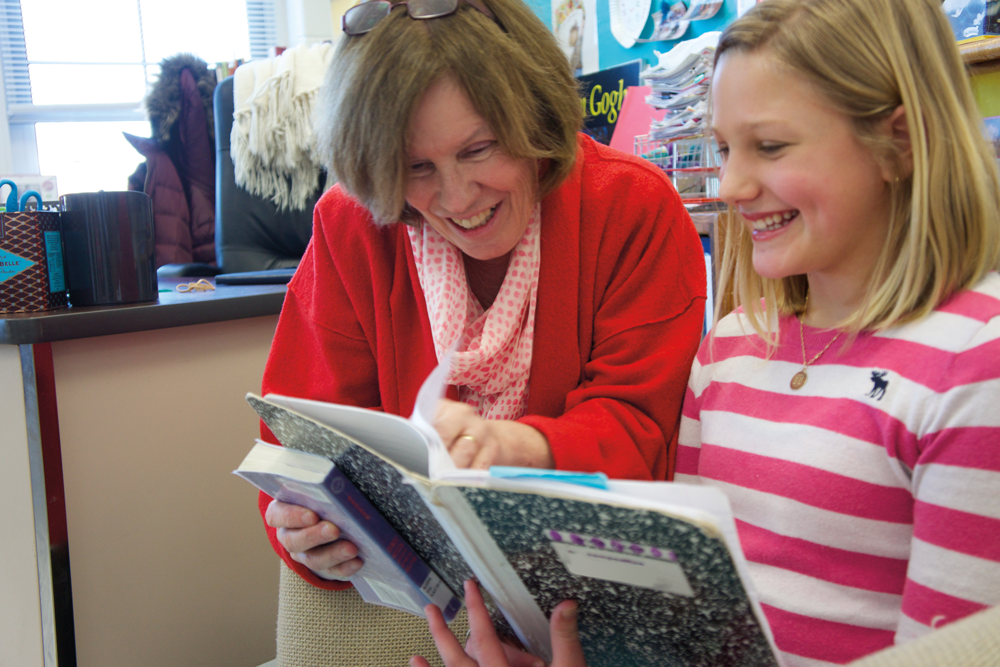
by Anna Gratz Cockerille
For many years, The Reading and Writing Project has engaged in research, staff development, and curriculum planning to support content area literacy. Infusing content area studies with rich literacy skills continues to be exciting and important work. To study history in particular requires a high level of facility in reading and writing. Students must engage in integrating information from multiple texts, close reading of primary sources, taking notes flexibly based on the information they are learning, and reporting on their learning in a variety of ways.
As students move up the grades and further in their history educations, they will be expected to read increasingly challenging texts and to write about their learning in increasingly sophisticated ways. Their history instruction will be focused on learning large swaths of content, and not on learning the skills of a researcher. So, it is of utmost importance to teach students early (in upper elementary and middle school) the transferable literacy skills that will help them to become effective students of history later (in high school into adulthood).
With its balanced emphasis on nonfiction and fiction reading, and on opinion, information, and narrative writing, The Units of Study series coherently supports the literacy skills students need most to study history. The literacy work that particularly lends itself to studying history includes:
- Nonfiction Reading: Certainly, reading to learn is the bulk of the work for a student of history. Students must be able to efficiently summarize texts into main ideas, use features of nonfiction texts to deepen their understanding, analyze texts for their structure, and differentiate facts from the author’s opinion. They must also be able to locate information quickly to conduct the efficient research needed to talk and write well about history.
- Note-Taking: There is so much power in teaching students to take the kind of notes that show they are really learning information and not just copying the text. If students are taking notes in various forms: boxes and bullets, timelines, flow charts, and sketches, this means they are really thinking about the best way to structure and capture each snippet of information.
- Information Writing: Because the main work of history writing is to weave together information from various sources in a way that is coherent and well-developed, it helps if students understand the basic principles of good information writing. They should have a mainly internalized sense that good information writing: is organized into categories, has different kinds of examples, and often is evidenced with information from credible sources.
- Essay Writing: So many history texts are laden with the author’s slant or perspective. If students have had some experience supporting their opinions with reasons and evidence, they are more able to identify and analyze other author’s arguments and to include their own ideas about the information they are researching when they write about history.
These literacy practices are embedded throughout the Units of Study series, both in reading and in writing. Units that specifically address the study of history include Bringing History to Life (Grade 4, Writing), Reading History (Grade 4, Reading), The Lens of History (Grade 5, Writing), and Documentaries: Bringing History to Life, part of the 6-8 Writing Series If…Then…Curriculum.
TCRWP Senior Research Associate and Staff Developer Emily Butler Smith, co-author of The Lens of History and Reading the Weather, Reading the World and Jasmine Junsay, teacher extraordinare who devoted much support to many of the Project’s content area literacy units will lead this week’s Twitter chat. Whether you teach history, English, or both, please join us to share in the intriguing and growing knowledge base that is content area literacy.
Each Wednesday night at 7:30pm eastern, The Teacher's College Reading and Writing Project hosts a Twitter chat using the hashtag #TCRWP. Join @emilyjbsmith & @msjasminejunsay tomorrow evening to chat about instructional plans for classroom libraries.
Not on Twitter? Take Heinemann’s free Twitter for Educators course here.
 Anna Gratz Cockerille, Coauthor of Bringing History to Life (Grade 4) in the Units of Study for Teaching Writing Series.
Anna Gratz Cockerille, Coauthor of Bringing History to Life (Grade 4) in the Units of Study for Teaching Writing Series.
Anna was a teacher and a literacy coach in New York City and in Sydney, Australia, and later became a Staff Developer and Writer at TCRWP. She served as an adjunct instructor in the Literacy Specialist Program at Teachers College, and taught at several TCRWP institutes, including the content literacy institute, where she helped participants bring strong literacy instruction into social studies classrooms. Anna also has been a researcher for Lucy Calkins, contributing especially to Pathways to the Common Core: Accelerating Achievement (Heinemann 2012), and Navigating Nonfiction in the Units of Study for Teaching Reading, Grades 3–5 series (Heinemann 2010). Most recently, Anna served as an editor for the Units of Study for Teaching Reading, K–5 series.


